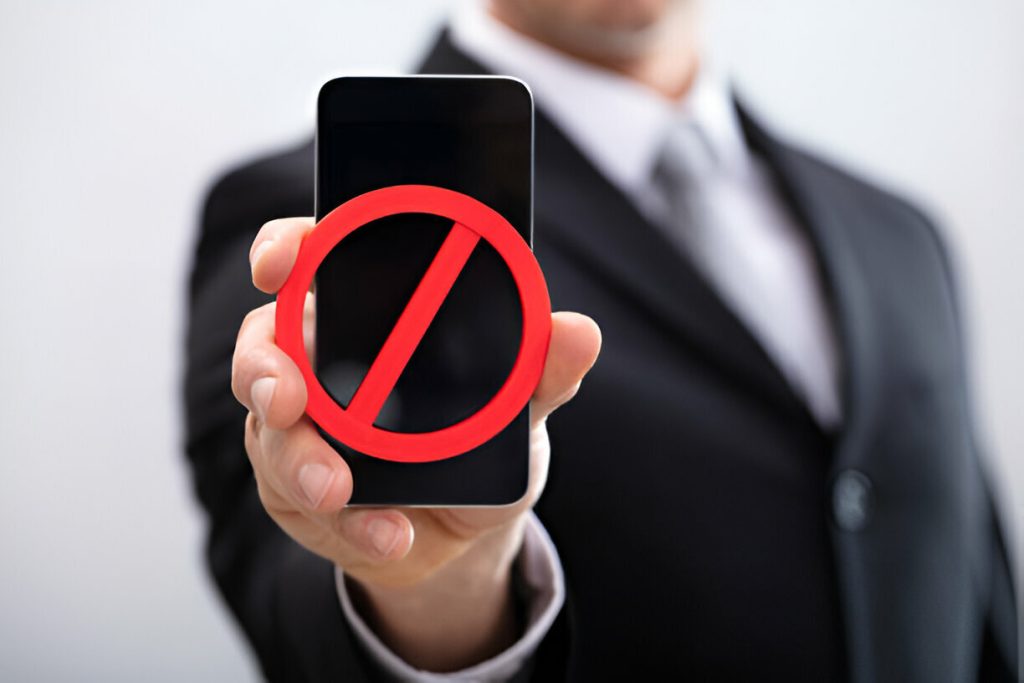Have you ever wondered what happens to the leftover campaign funds after an election? Can candidates keep and use the funds for personal purposes? In this article, we’ll explore whether the law prohibits candidates from keeping their campaign funds. We’ll delve into the regulations and restrictions on the personal use of campaign funds, the permissible uses of these funds, and the role of the Federal Election Commission (FEC) in monitoring and enforcing these rules.
Permissible Uses of Campaign Funds
You can use campaign funds for certain purposes that are permissible under the law. When it comes to campaign fund donations, you are allowed to make donations to charities, as long as you don’t receive any compensation and the donation isn’t used to benefit yourself. Additionally, you can donate to other federal, state, or local candidates, subject to state law. Another permissible use is making gift donations of nominal value on special occasions to anyone besides your family.
Transfers to political party committees are also allowed. You can transfer funds to a local, state, or national political party committee. Furthermore, you can transfer funds to a future election campaign committee of your own.
However, it’s important to note that there are restrictions on using campaign funds for personal expenses. Candidates are prohibited from using remaining funds for personal use. Personal use is defined as expenses that would exist irrespective of your campaign or responsibilities as a federal officeholder. This includes household items, mortgage or rent for a personal residence, and salary payments to your family, unless they provide a bona fide service to the campaign.
To ensure compliance with campaign fund regulations, it’s essential to familiarize yourself with the permissible campaign expenditures outlined by the Federal Election Commission (FEC). They specify rules on transfers between a candidate’s committees and regulate contributions to other federal and nonfederal candidates. Transfers to or from party committees are also subject to FEC regulations.
Restrictions on Personal Use of Campaign Funds
Candidates face specific restrictions on the personal use of their campaign funds. These restrictions are put in place to ensure that campaign funds are used for legitimate campaign purposes and not for personal expenses. Here is an overview of the personal use restrictions, case studies of personal use violations, the impact of these restrictions on campaign strategies, ethical considerations in the use of campaign funds, and alternatives to using campaign funds for personal expenses:
- Personal use restrictions overview:
- Candidates are prohibited from using remaining funds for personal use.
- Personal use is defined as expenses that would exist irrespective of the candidate’s campaign or responsibilities as a federal officeholder.
- Expenses automatically considered personal use include household items, mortgage or rent for a personal residence, and salary payments to the candidate’s family (unless they provide a bona fide service to the campaign).
- Case studies of personal use violations:
- Several high-profile cases have highlighted violations of personal use restrictions, including using campaign funds for luxury vacations, personal expenses, or legal fees unrelated to the campaign.
- Impact of personal use restrictions on campaign strategies:
- Candidates must carefully plan their campaign budgets to ensure that funds are allocated only for legitimate campaign purposes.
- The restrictions may limit candidates’ ability to use campaign funds for personal benefit, potentially impacting their lifestyle or personal financial situation.
- Ethical considerations in the use of campaign funds:
- Candidates must consider the ethical implications of using campaign funds for personal expenses and ensure transparency in their financial practices.
- Using campaign funds for personal use can raise questions about the candidate’s integrity and commitment to public service.
- Alternatives to using campaign funds for personal expenses:
- Candidates can use their personal funds or seek alternative sources of income to cover personal expenses.
- Seeking reimbursement from the campaign for legitimate campaign-related expenses can help minimize the need to use campaign funds for personal use.
General Election Refunds
Transitioning from the previous subtopic on personal use restrictions of campaign funds, candidates must adhere to specific regulations regarding general election refunds. When a candidate drops out or loses in the primary race, they are required to refund $2,900 of the donation to the donor within 60 days. This refund process ensures that donors have the option to recover a portion of their contribution if the candidate is no longer running. However, candidates also have the option to seek donor permissions to redesignate or redistribute their general election funds. This alternative fund redistribution allows candidates to reallocate the funds to other campaigns or political causes with the agreement of the original contributors. It provides flexibility in managing campaign finances and supporting candidates or causes that align with the donors’ interests. The donor refund timeline and alternative fund redistribution provide accountability and transparency in the use of campaign funds, ensuring that contributions are utilized in a manner that aligns with the donors’ intent and the outcome of the primary race.
Regulations on Campaign Fund Usage
One must adhere to specific regulations regarding the usage of campaign funds. These regulations cover a range of aspects, including campaign fund transfers, contribution limits, FEC regulations, Super PAC regulations, and reporting requirements. Here is a breakdown of these regulations:
- Campaign fund transfers: The Federal Election Commission (FEC) specifies rules on transfers between a candidate’s committees. Transfers to or from party committees are also regulated by the FEC.
- Contribution limits: There are caps on the amount of money that can be contributed to a campaign. For example, the contribution limit for the 2021-2022 federal election cycle is $2,900 per election. Candidates who drop out or lose the primary race must refund $2,900 of the donation to the donor within 60 days.
- FEC regulations: The FEC regulates the usage of campaign funds, ensuring that they are not used for personal expenses. Candidates are prohibited from using remaining funds for personal use, which includes expenses that would exist irrespective of the campaign or responsibilities as a federal officeholder.
- Super PAC regulations: Super PACs are separate entities from the campaign and have their own rules. Leftover campaign funds can be transferred to Super PACs, but they must register with the FEC and operate within their regulations.
- Reporting requirements: Candidates must report contributions from personal funds, as well as other types of contributions and expenditures. The reporting requirements differ depending on the nature of the funds and the recipient.
Super PACs and Leftover Campaign Funds
Once you have followed the regulations regarding the usage of campaign funds, it is important to understand the role of Super PACs and what can be done with leftover campaign funds. Super PACs, or political action committees, play a significant role in elections by supporting candidates through independent expenditures. These independent expenditures can include advertisements, voter mobilization efforts, and other campaign-related activities. Super PACs are separate entities from the candidate’s campaign and have their own rules and regulations.
Leftover campaign funds can be transferred to Super PACs, allowing candidates to continue supporting their political agenda even after their campaign has ended. This redistribution of funds can have a significant impact on elections, as Super PACs have the ability to spend unlimited amounts of money to influence the outcome.
However, there are legal implications and transparency concerns associated with the use of leftover campaign funds for Super PACs. While it is legal to transfer funds to Super PACs, the sources and use of these funds must be disclosed to the Federal Election Commission (FEC) and made available to the public. This ensures transparency and accountability in the political process.
Ethical considerations also come into play when deciding what to do with leftover campaign funds. Candidates should carefully consider the impact of their contributions to Super PACs and ensure that the funds are being used in a manner consistent with their values and goals.
Definition and Sources of Personal Funds
To understand the regulations surrounding the usage of personal funds by candidates, it is important to define the sources and nature of these funds. Personal funds refer to the assets and income that candidates have legal access to and control over. These funds can come from various sources, including:
- Campaign fund limits: Candidates are subject to contribution limits when it comes to their campaign funds. These limits determine the maximum amount that individuals can donate to support a candidate’s campaign.
- Reporting personal funds: Candidates are required to report any personal funds they contribute to their campaign. Reporting guidelines differ depending on whether the funds are loaned or contributed directly to the campaign committee or spent out-of-pocket.
- Loans and contributions: Candidates can receive, report, and repay personal loans as part of their campaign funds. Specific guidelines and regulations apply to personal loans from candidates.
- Permissible personal expenses: Candidates are prohibited from using campaign funds for personal expenses. Personal expenses are defined as expenses that would exist irrespective of the candidate’s campaign or responsibilities as a federal officeholder. Certain expenses, such as household items or mortgage payments for personal residences, are automatically considered personal use.
- Donating campaign funds: Candidates are allowed to donate their campaign funds to charities, other candidates, political party committees, or transfer the funds to future election campaigns.
Understanding the sources and regulations surrounding personal funds is crucial for candidates to ensure compliance with campaign finance laws and the responsible use of campaign funds.
Use of Jointly Held Assets
You can use jointly held assets as personal funds, determining your share in the asset as half the value if the financial interest is not specified. When it comes to the use of jointly held assets for campaign purposes, there are several ethical implications, legal considerations, tax implications, asset valuation, and joint ownership arrangements that you need to be aware of.
Using jointly held assets for personal funds raises ethical concerns as it may blur the line between personal and campaign expenses. It is important to ensure that the use of these assets aligns with the campaign’s purpose and does not lead to any conflicts of interest.
From a legal perspective, using jointly held assets requires careful consideration of ownership rights and responsibilities. It is advisable to consult with legal experts to understand the implications and ensure compliance with relevant laws and regulations.
Tax implications also come into play when using jointly held assets for campaign expenses. It is crucial to properly account for these expenses and adhere to tax regulations to avoid any potential penalties or legal issues.
Valuing jointly held assets can be challenging, especially if the financial interest is not specified. It is recommended to engage professional appraisers or financial experts to determine the fair market value of these assets accurately.
Lastly, joint ownership arrangements can impact the use of jointly held assets for campaign purposes. It is essential to understand the terms and conditions of these arrangements, including any restrictions or limitations on the use of the assets.
Unearned Income and Fringe Benefits
Using unearned income and fringe benefits can have implications for the proper use of campaign funds. It is important for candidates to understand the tax implications, reporting requirements, permissible uses, limitations on compensation, and rules surrounding third party payments when utilizing unearned income and fringe benefits for their campaigns. Here are some key points to consider:
- Tax implications: Candidates must be aware of the tax implications of using unearned income and fringe benefits for their campaign funds. It is important to consult with a tax professional to ensure compliance with tax laws.
- Reporting requirements: Candidates are required to report any unearned income and fringe benefits used for campaign funds. This includes disclosing the sources of income and the specific purposes for which the funds were used.
- Permissible uses: Candidates can use unearned income and fringe benefits for campaign-related expenses, such as advertising, travel, and staff salaries. However, it is important to ensure that the expenses are directly related to the campaign and not for personal use.
- Limitations on compensation: Candidates must be mindful of limitations on the amount of compensation they can receive from their campaign funds. Excessive or unreasonable compensation can raise ethical and legal concerns.
- Third party payments: Candidates should be cautious when accepting third party payments for campaign expenses. These payments may be considered contributions and subject to regulations and reporting requirements.




